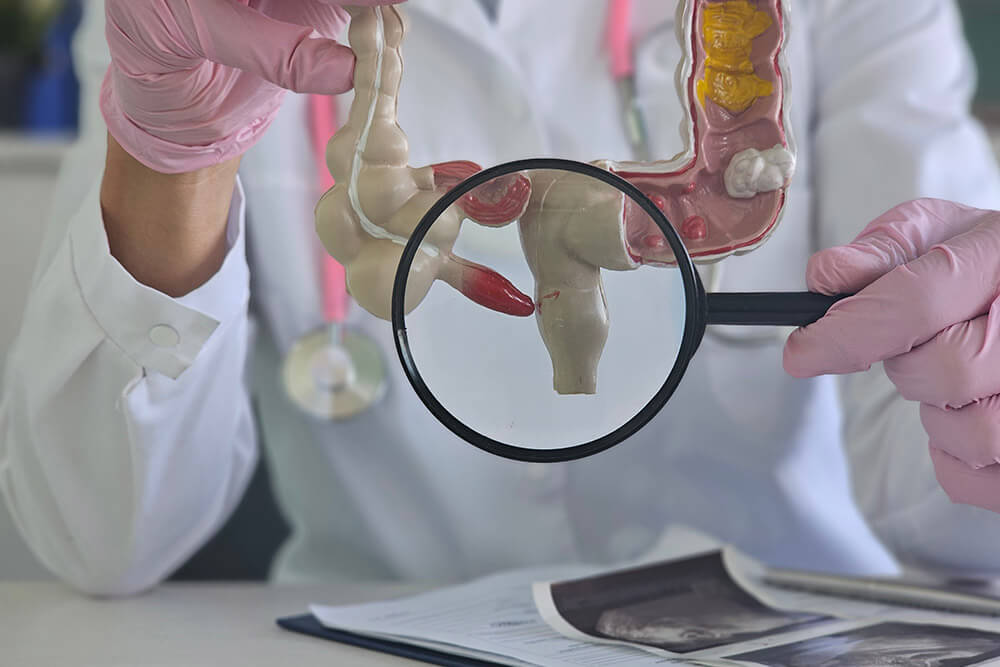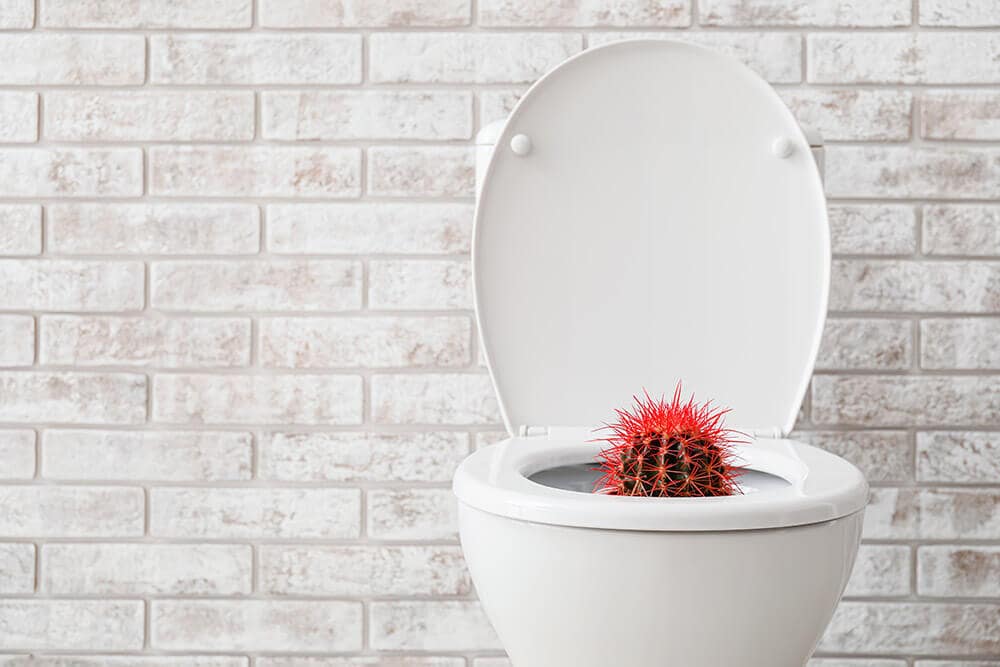What Is a Granuloma in the Intestine?
A granuloma is a small lump made of immune cells that forms when the body fights infection or inflammation. In the intestines-either the small or large bowel-granulomas are benign but can mimic other conditions such as Crohn's disease.
Common Causes and Risk Factors
- Crohn's disease (most common cause)
- Infections such as tuberculosis or parasites
- Certain medications (for example, some antibiotics)
- Autoimmune diseases like sarcoidosis
- Family history of inflammatory bowel conditions
- Past infections or long-term medication use
Signs and Symptoms
- Abdominal pain or cramps
- Ongoing diarrhea or constipation
- Blood or mucus in the stool
- Unexplained weight loss
- Fatigue or a mild fever
How Dr. Rishi Diagnoses Granuloma In Intestine?
Dr. Chadha follows a clear, step-by-step approach:
1. Health History and Physical Exam
He reviews your symptoms, medical and family history, and risk factors, then performs a focused abdominal and rectal exam.
2. Blood Tests
We check for markers of inflammation or infection, including complete blood count (CBC), C-reactive protein (CRP) and tests for TB or parasites.
3. Imaging Studies
- CT Scan to detect bowel wall thickening or inflammatory changes.
- MRI Enterography for detailed views of the small intestine and any granulomatous lesions.
4. Colonoscopy and Biopsy
This is the gold standard. During colonoscopy, Dr. Chadha takes targeted tissue samples to confirm granulomas under the microscope (ICD-10 Code: K63.5).
Frequently Asked Questions
What is a granuloma in the gut?
It's a small lump of immune cells that forms in the intestine when the body fights infection or inflammation.
What causes it?
Most often Crohn's disease, but also infections (like TB or parasites), certain medications, or autoimmune diseases such as sarcoidosis.
What are the symptoms?
Many people have no early signs. When symptoms occur, they may include stomach pain or cramps, ongoing diarrhea or constipation, blood or mucus in stool, unexplained weight loss, fatigue, or low-grade fever.
How is it diagnosed?
Through a detailed health history and exam, blood tests, CT or MRI imaging, followed by colonoscopy and biopsy, which is the definitive test for granulomas.
Is it dangerous?
Granulomas themselves are not cancerous. However, they can signal a more serious condition like Crohn's disease or an infection that requires treatment.
Can it turn into cancer?
No. Granulomas are benign. But long-term intestinal inflammation may slightly increase the risk of colon cancer over time.
How can you tell it's not cancer?
Only a tissue biopsy from the colonoscopy can confirm that the lesion is a granuloma and not cancer.
How long does treatment take?
Some patients feel relief within a few weeks of starting therapy, but others-especially those with underlying conditions-may need longer-term management.
Can lifestyle changes help?
Yes. A soft, low-fiber diet during flare-ups, good hydration, probiotics, stress-reduction techniques like yoga or deep breathing, and other lifestyle adjustments can ease symptoms.
How can I make an appointment?
Call GastroDoxs in Houston or book online to schedule a consultation with Dr. Rishi Chadha.











